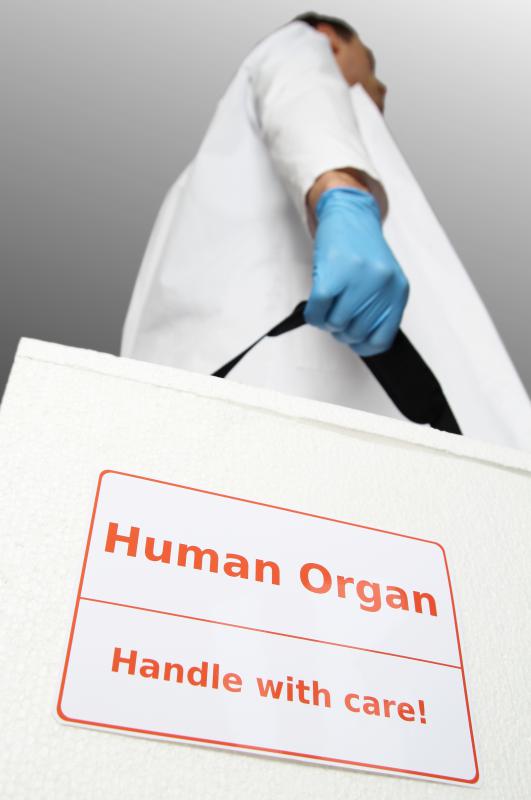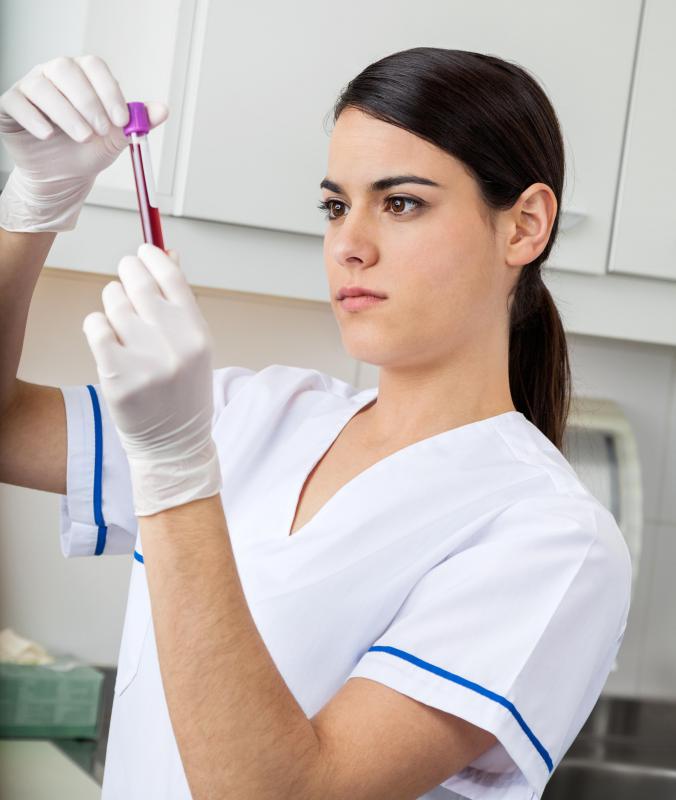At TheHealthBoard, we're committed to delivering accurate, trustworthy information. Our expert-authored content is rigorously fact-checked and sourced from credible authorities. Discover how we uphold the highest standards in providing you with reliable knowledge.
What is the Major Histocompatibility Complex?
The major histocompatibility complex (MHC) is an area of the genome which codes for a series of proteins expressed on the cells in the body. These proteins serve as flags for the immune system which allow the immune system to distinguish between “self” proteins which belong in the body, and “nonself” proteins which are foreign. The T cells of the immune system interface with the proteins produced by the major histocompatibility complex, using this information to determine whether or not material encountered in the body belongs there.
These proteins take the form of antigens. In humans, they are known as human leukocyte antigens (HLA). Fixed on the outside of a cell, these antigens can be presented, much like credentials, to the immune system. If the immune system recognizes an antigen as harmful, it can take steps to kill the cell it is attached to. This is designed to allow the immune system to kill bacteria and other organisms which make their way into the body, and to allow the immune system to identify cells which have been infected by viruses so that the spread of the virus can be stopped.

The MHC is extremely diverse. Some of the genes involved have hundreds of alleles, which is rather unusual; few genes have so many different ways in which they can express. The diversity of the major histocompatibility complex is both a blessing and a curse. Genetic diversity makes the human race stronger, especially when it comes to immune defense, but it also makes it difficult to transplant tissue between humans.

When blood, tissue, or other donated biological material is transplanted from one person into another, the HLA antigens may not match. As a result, the recipient's immune system will consider the donor material to be alien, and it will attack it. This causes transplant rejection with things like skin and organs, and with blood, it can cause severe reactions. In some cases, a major histocompatibility complex conflict can be deadly.

There are a number of different tests which can be used to identify key areas of someone's major histocompatibility complex. These tests are run when people are evaluated for organ donation, so that a match which will fit as perfectly as possible can be found. While some people may assume that blood type is the only thing tested for, in fact, there are an assortment of antigens which can conflict and testing must be thorough to avoid wasting donor material on someone who cannot receive it.
AS FEATURED ON:
AS FEATURED ON:













Discussion Comments
It's so interesting how the mechanism of the immune system to protect the body can get in the way of health when it comes to organ transplants. It's also interesting how despite the medical advancements, we haven't been able to figure out a way to get immune system cells to accept transplanted organs.
Why can't we produce MHC proteins or antigens that can be placed into an organ meant for being transplanted to match the receiver's? Or why can't we alter the antigens of an organ before transplanting it? Is there any research being done on these areas?
@donasmrs-- Possibly. Has your sister had any genetic testing? I think genetic testing can help determine if there is a genetic basis for an auto-immune disease. And if there is a genetic basis, it most certainly has to do with the genes of the MHC.
I don't think that all auto-immune diseases are genetically based but some are. Those are the ones called "hereditary auto-immune diseases" and I think those usually do show up from birth. Have you heard of severe combined immunodeficiency a.k.a. bubble boy disease? Scientists think that this has to do with MHC and it's a hereditary disorder where the immune system doesn't work and this exists from birth.
I'm sure your sister's doctor can help you guys finds answers to some of these questions.
Is the histocompatibility complex the reason behind this?
Post your comments